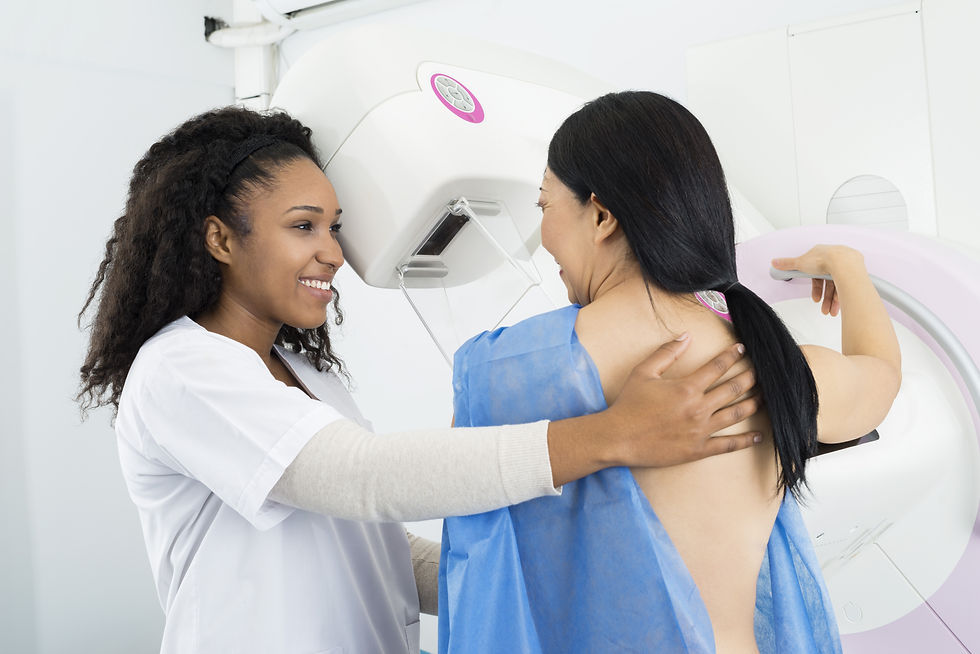Uncovering the Mystery: Acupuncture's Impact on Hormonal Balance and Menstrual Health
- OksanaG
- Feb 22, 2025
- 3 min read
Hormones play a crucial role in women’s health, influencing everything from mood and metabolism to menstrual cycles and fertility. However, factors such as stress, poor diet, environmental toxins, and aging can disrupt hormonal balance, leading to symptoms like irregular periods, PMS, fatigue, mood swings, and even infertility. Traditional Chinese Medicine (TCM), particularly acupuncture, offers a natural and holistic approach to restoring hormonal harmony.

Understanding Hormonal Imbalance
Hormonal imbalances occur when there is too much or too little of a particular hormone in the body. Common conditions associated with hormonal imbalance include:
Irregular Menstrual Cycles – Periods that are too frequent, infrequent, or absent.
Polycystic Ovary Syndrome (PCOS) – A condition causing irregular cycles, excessive androgens, and cysts on the ovaries.
Premenstrual Syndrome (PMS) – Symptoms like bloating, mood swings, and fatigue before menstruation.
Menopause and Perimenopause Symptoms – Hot flashes, night sweats, and mood changes due to declining estrogen levels.
How Acupuncture Restores Hormonal Balance
Acupuncture is a key component of TCM that involves inserting thin needles into specific points on the body to stimulate energy flow (Qi) and promote healing. When it comes to hormonal health, acupuncture works in several ways:
1. Regulating the Hypothalamic-Pituitary-Ovarian (HPO) Axis
The HPO axis controls the production of hormones like estrogen, progesterone, and testosterone. Acupuncture helps regulate this system by:
Reducing stress and cortisol levels, which can otherwise suppress reproductive hormones.
Enhancing communication between the brain and ovaries to support a regular menstrual cycle.
2. Improving Blood Circulation to the Reproductive Organs
Acupuncture increases blood flow to the uterus and ovaries, improving egg quality and uterine lining thickness, which is crucial for menstrual health and fertility.
3. Reducing PMS and Menstrual Pain
By promoting endorphin release and reducing inflammation, acupuncture helps relieve cramps, headaches, bloating, and other PMS symptoms naturally.
4. Supporting Detoxification and Liver Function
The liver plays a significant role in metabolizing hormones. Acupuncture supports liver function, helping to clear excess estrogen and other hormonal byproducts that contribute to imbalances.
Scientific Evidence Supporting Acupuncture for Hormonal Health
Studies have shown that acupuncture can positively affect hormone levels:
A study published in Gynecological Endocrinology found that acupuncture can regulate menstrual cycles and improve ovulation in women with PCOS.
Research in The Journal of Clinical Endocrinology & Metabolism demonstrated that acupuncture reduces stress hormones, indirectly supporting reproductive health.
What to Expect in an Acupuncture Session
During an acupuncture session, your practitioner will assess your symptoms, pulse, and tongue diagnosis (a key TCM diagnostic method). Thin needles will be inserted into specific points to address your unique imbalances. Most patients find the experience relaxing and may notice improvements in symptoms within a few sessions.
Holistic Lifestyle Tips to Enhance Acupuncture Benefits
While acupuncture is highly effective, combining it with lifestyle changes can further support hormonal balance:
Eat a Balanced Diet – Include whole foods, healthy fats, and avoid processed sugar as well as raw and cold meals.
Manage Stress – Practice meditation, deep breathing, and light exercise like yoga or qi gong.
Get Quality Sleep – Aim for 7-9 hours of restful sleep to support hormone regulation.
Conclusion
If you’re struggling with hormonal imbalances, acupuncture offers a natural, evidence-based solution to support menstrual health and overall well-being. By improving circulation, regulating hormone production, and reducing stress, acupuncture helps restore balance to your body’s natural rhythms. Ready to experience the benefits? Book a consultation today to start your journey to hormonal harmony!




Comments